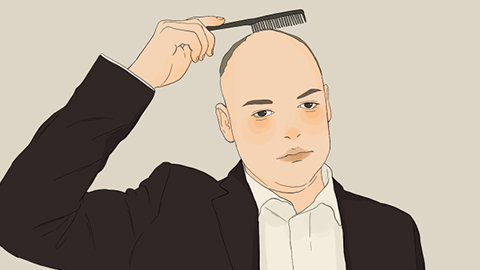How to improve hair loss and severe alopecia
Normally, hair loss may be related to unhealthy living habits, stress, seborrheic dermatitis, hypothyroidism, alopecia areata, and other factors. Patients can treat the condition by improving their lifestyle habits, adjusting their lifestyle, and using medication. It is recommended that patients visit a hospital promptly and follow medical advice for treatment. Detailed analysis is as follows:

1. Unhealthy living habits: Poor habits such as staying up late for long periods, irregular作息 (作息 should be replaced with an appropriate English term like "sleep patterns"), and excessive use of electronic devices may affect the body's normal metabolism and hormonal balance, thereby causing hair loss. It is recommended to improve lifestyle habits, ensure adequate sleep, and avoid staying up late and overexertion.
2. Stress: High levels of mental stress can lead to hormonal imbalances in the body, especially increased cortisol levels, which may affect the normal growth cycle of hair follicles, accelerating their entry into the resting phase and resulting in significant hair loss. Adjusting lifestyle, ensuring adequate rest and sleep, and engaging in relaxation exercises or psychological counseling as appropriate are recommended.
3. Seborrheic dermatitis: This is a common chronic skin condition usually associated with excessive sebum production. Symptoms include an oily scalp, redness, itching, and flaking, which can cause hair breakage and severe localized hair loss. It is recommended that patients use medications such as ketoconazole shampoo, mometasone furoate cream, and vitamin B6 tablets under a doctor's guidance to alleviate symptoms.
4. Hypothyroidism: Hypothyroidism may lead to a decreased metabolic rate, affecting the normal growth and renewal of hair follicles. Symptoms may include fatigue, weight gain, constipation, and dry skin. Patients should use medications such as levothyroxine sodium tablets, thyroid tablets, and hydrocortisone injections under the guidance of a doctor to aid recovery.
5. Alopecia areata: Alopecia areata is an autoimmune disease in which the immune system mistakenly attacks hair follicles, leading to localized or widespread hair loss. It typically presents as round or oval bald patches with clear edges. It is recommended that patients use medications such as compound glycyrrhizin tablets, prednisone acetate tablets, and Yangxue Shengfa capsules under a doctor's guidance to alleviate symptoms.
During treatment, it is important to keep the scalp clean and dry, avoid scratching or squeezing the scalp to prevent worsening infection, and maintain a positive mindset.







